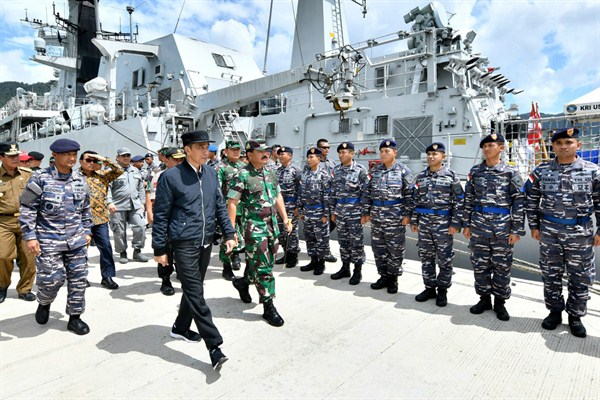By reigniting a dispute with Indonesia over control of the Natuna Islands, China appeared to be asserting its expansive territorial claims and challenging Indonesia's newly re-elected president. The move could backfire, though, by undermining Beijing's regional diplomatic goals.
China sparked a major maritime confrontation with Indonesia near the South China Sea last month when dozens of Chinese fishing vessels, along with a coast guard escort, entered waters off the Natuna Islands, which are within Jakarta’s exclusive economic zone but are also claimed by China. Indonesian authorities responded swiftly, summoning China’s ambassador on Dec. 30 to lodge a protest and subsequently dispatching warships and F-16 fighter jets to patrol the region. Beijing initially refused to back down, as a Foreign Ministry spokesperson on Dec. 31 stated unequivocally that “China has sovereign rights and jurisdiction over relevant waters near the Nansha Islands,” using the Chinese name for the nearby Spratly Islands, where China has built several military installations on reclaimed land.
Jakarta called upon its own fishing vessels to relocate to the Natuna Islands to compete with Chinese fishermen. And on Jan. 6, President Joko Widodo, or Jokowi, as he is widely known in Indonesia, declared there would be “no compromise” on “our nation’s territorial sovereignty.” He visited the Natunas two days later to demonstrate his point.

